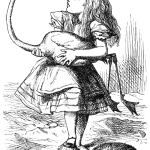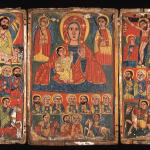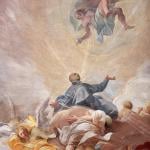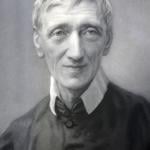Washington D.C., Nov 3, 2016 / 03:09 am (CNA).- Religious liberty is a pressing issue in this election, advocates say – but both major presidential candidates have shown serious deficiencies when it comes to protecting freedom of religion. “What the friends of religious freedom need in the White House is a real, well-informed, energetic defender of religious freedom. And I don’t see one leading either party at the moment,” Dr. Matthew Franck, director of the William E. and Carol G. Simon Center on Religion and the Constitution, told CNA. The next president may directly affect the outcome of religious freedom conflicts, either through their administration’s policies or their appointments to the judiciary. Hillary Clinton’s support for broad anti-discrimination protections have concerned faith leaders that churches and religious charities will be forced to perform services that violate their religious mission, or be punished by the government for alleged discrimination. For example, Catholic adoption agencies in several states have been forced to close rather than obey state mandates to place children with same-sex couples, against their religious beliefs. Franck predicted there “could be a national push for this” under a Clinton presidency, and the Clinton campaign’s website says that “[Hillary] will end discriminatory treatment of LGBT families in adoptions.” Another policy Clinton supports is the Equality Act, a proposed bill supported by most Democrats in Congress. Experts say it would force citizens and organizations to approve of acts they consider immoral. Under the bill, “traditional orthodox Christian views about marriage and so forth are really expressions of bigotry, and not to be publicly tolerated,” V. Bradley Lewis, professor of philosophy at The Catholic University of America, explained to CNA. Clinton has been a long-time promoter of access to contraceptives and abortions for women, and has promoted this agenda both domestically and internationally. In her keynote address at the 2015 Women in the World summit, Clinton maintained that “far too many women are denied access to reproductive health care and safe childbirth, and laws don’t count for much if they’re not enforced.” She added that “laws have to be backed up with resources and political will, and deep-seated cultural codes, religious beliefs, and structural biases have to be changed.” Clinton would probably continue the HHS birth control mandate, which forces all employers to include in their employee health plans contraceptives, sterilizations, and drugs that can cause abortions. This could mean continued litigation against objecting religious non-profits until the cases are resolved by the Supreme Court. And the appointment of a Supreme Court justice is another concern for religious freedom advocates after Justice Antonin Scalia’s death in February created a vacancy that will be filled by the next president’s appointee. This justice could be the deciding swing vote in a 5-4 religious freedom case. Clinton has said she would appoint justices who would uphold the right to abortion and same-sex marriage. A major case involving the birth control mandate, Zubik v. Burwell, is still being litigated and resolved at the federal court level after the Supreme Court sent the case back to the circuit courts. The Little Sisters of the Poor and other charitable organizations stood to win their case at the Supreme Court if the late Justice Antonin Scalia were on the bench, Franck noted, but under a justice appointed by Clinton if she were to be president, “they’re probably losers.” Clinton also would support the transgender mandate, the Obama administration’s rule that would force doctors and physicians around the country to perform gender transition services if asked, even if they thought it harmful to the patient’s health. Franck called it a “serious attack on physician freedom, including religious freedom,” and added, “I think that Hillary would keep that in place” and “might even expand on it.” Earlier this year, the state of California mandated that pro-life crisis pregnancy centers had to inform patients on where and how they could procure abortions. “I wouldn’t be surprised if Hillary Clinton wanted to make that [law] national, if she could,” Franck said. Another concern is that the Department of Education, with direct oversight of college accrediting bodies, could demand that these bodies withhold accreditation of religious schools until they support same-sex marriage. And that’s just the domestic policy agenda. Internationally, Clinton could continue the State Department’s recent promotion of LGBT rights abroad as a “main” pillar of their diplomacy while focusing “very little” on religious freedom, Lewis noted. Also of note are the recent release of past emails of Clinton’s campaign chair John Podesta, published by the website WikiLeaks. Podesta, in a 2012 email thread about the Catholic bishops’ opposition to the Obama administration’s birth control mandate, was asked about the possibility of a “Catholic spring” to generate popular Catholic opposition to the bishops and bring about “the end of a middle ages dictatorship and the beginning of a little democracy and respect for gender equality in the Catholic church.” He responded that Catholic groups like Catholics United and Catholics in Alliance for the Common Good had been created for “a moment like this.” The “moment” Podesta is referring to could be “the eruption of a conflict between the Catholic Church and the liberal state,” Franck said, a “pseudo-Catholic front for generating dissent inside the Catholic Church when it comes into conflict with the government in order to weaken that side in the conflict.” That it comes from the campaign chair of a major presidential candidate is all the more troubling, Franck insisted. “That’s straight from somebody who is linked, for his whole career,” he said, “with the Clintons, and would be an important figure in a new Clinton administration.” “I think what we can expect to see out of a Hillary Clinton administration is a continuation of the trajectory we’ve already seen in the two terms of the Obama administration,” Franck said, adding that “I would have serious, serious doubts that it would be better” or that Clinton’s administration would be “persuaded to moderate or retreat from any of the Obama initiatives that have been damaging to religious freedom.” Trump, meanwhile, caused a stir last year when, after November’s Paris terror attacks and purportedly for national security reasons, he advocated “a total and complete shutdown of Muslims entering the United States until our country's representatives can figure out what is going on.” Lewis called that policy, singling out a religious group, “in and of itself problematic on religious freedom grounds.” Trump presented an “expansion” of that plan this summer, a ban on immigration from countries and territories that have been “compromised” by terrorism. His running mate Mike Pence said that Christians and Jews from such countries would also be included under such a ban. Meanwhile, Trump’s rhetoric on other religious freedom issues shows that he lacks a presidential command of the topic, advocates say. Although Trump could be “marginally better” than Clinton on religious freedom in that he would hire staff members who did not promote radical secularism, “I don’t really see Mr. Trump mounting much of a challenge to the agenda of the sexual revolution on same-sex marriage and transgender issues,” Franck said. “On a generous reading of his statements, one might imagine that Trump simply doesn’t care about religious freedom, and perhaps doesn’t understand what is at stake,” Rachel Lu, a professor of philosophy at the University of St. Thomas, wrote for the Religious Freedom Institute. For instance, Trump “waffled on North Carolina’s transgendered bathroom law, but his immediate impulse was to criticize the state for infringing on the rights of the transgendered,” she wrote. Trump was asked about religious freedom by EWTN’s Raymond Arroyo on “The World Over” last Thursday. He responded by championing the repeal of the Johnson Amendment, which prohibits clergy from endorsing political candidates from the pulpit, and as Trump put it, stops faith leaders from endorsing him as a candidate. “I think it’s one of the most important things that I’ll be doing for the evangelicals and for religion,” he said. “So, I think it’s very, very important.” However, while repealing the amendment is a good step, it is “way, way down the list [of importance] for every religious leader I talked to,” Franck said. Furthermore, some say Trump’s rhetoric toward ethnic and religious minorities has inflamed social tensions and could spell trouble for them if he is elected president. In a piece published by the Religious Freedom Institute, two representatives of the Ahmadyyia Muslim community harshly criticized Trump for his rhetoric and policy proposals for religious minorities, saying the policies are a “sharp departure from anything that we have seen in decades.” In addition to his proposed Muslim ban, Trump had advocated the “surveillance of certain mosques” as a national security measure in the wake of the Paris attacks. “It has become apparent that Trump responds emotionally to current events and does not always think his proposals through and whether or not they violate the principles of the constitution,” Rasheed Reno and Qasim Rashid wrote. “They are often inspired by fear and anger which is a dangerous and irresponsible use of a leadership position.” This volatile behavior by a presidential candidate could spell danger for religious minorities under his administration, they insisted. “When a president shows willingness to violate the civil liberties of its citizens,” like through a Muslim ban, “it sets a dangerous example which leads to violence and unrest against religious minorities,” they added. “This has already been demonstrated in the short period of Trump’s candidacy, where violence against Muslims and other minorities has increased significantly.” When he was asked by a Muslim-American about this uptick in violence during the second presidential debate, instead of explaining how he would protect the religious freedom of U.S. Muslims, Trump immediately pivoted to the need for Muslims to report suspicious activity in their own communities, they pointed out. What can Catholics do when religious freedom is under attack, and may continue to be under attack in the next presidential administration? Church leaders must continue publicly defending it, Lewis maintained, pointing to initiatives like the U.S. bishops’ Fortnight for Freedom campaign. Also, though the eyes of the nation are on the presidential race, there are plenty of key congressional races, Lewis added. “We have to know what the views of candidates for Congress are on these questions as well,” he said, as “it’s in their hands to approve legislation” like the First Amendment Defense Act, which would establish religious freedom protections. The Church must also tell its story if religious charities are to gain a sympathetic ear from the public, he said, as the freedom of religious charities is threatened by laws like the birth control mandate and state laws preventing churches from serving undocumented immigrants. “It’s important to continue to articulate the fact that those institutions do their work as part of their apostolic commissions,” Lewis said. “It’s not the case that the Church just runs charitable organizations just to run charitable organizations.” “There’s no separating what they do from the very heart of the Christian mission.” Read more














